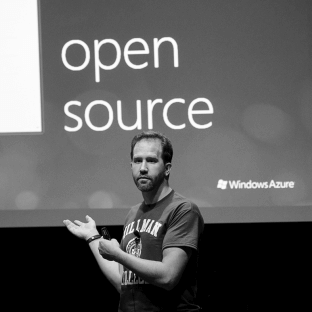What is a remote work pain point, and how do you address it?
It’s hard to network within the company virtually. I have joined different company-sponsored virtual communities, such as a women’s group, book club, and finance group on the internal site.
Communicating to family and visitors that you actually are doing work, and you need a quiet space without interruptions. My husband is great about this, but when I visit family or we have visitors I have to make sure I set their expectations about when I’m working. I tell them “Hey, when my office door is closed, I’m working. Pretend I’m at the office and I’m not here, I’m unavailable.” They are usually very respectful once I lay it out.
Social isolation… until you make the effort and find your strategy to build a social life…
Time zones challenge… Not always in the same energy as people you need to interact with (most difficult is having to call a bank in the middle of the night)
Legal and tax structure… As an international nomad since 1994, I had to figure out in which jurisdictions I should register my companies and where I could acquire personal residency status while being able to live and travel full time around the world. Lots of experts specialists in their own jurisdiction, but still never heard of anyone who has all the international knowledge, able to take in consideration all the interrelated aspects of a nomad’s situation as a whole, which varies largely depending on countries of citizenship, legal residency, businesses incorporation, ever changing physical location, etc… My structure has evolved along the years and I was even inspired to start a business offering some solutions to nomads and wannabe expats: NomadResidency.com.
Ensuring that you have all the resources you need to do your work, which might otherwise be provided by an employer. You have to be a lot more self-sufficient, which is something you learn, but not something everyone is from the beginning.
Mid-term housing. It’s easy to book hotels and Airbnbs for a few days or a couple weeks and semi-easy to find a long-term lease, but things tend to get either a bit pricey, time-consuming, or complicated when staying for a month or two or three.
There are more and more initiatives and co-living projects for digital nomads being created, such as Outsite or Roam. Also, more information [about] renting is shared online and in Facebook groups.
Inconsistent internet connectivity is the key pain point to working remotely in the manner that I do. To combat this, I typically have 2-3 other methods to connect at my disposal. In addition to local ‘house’ wifi, I also buy a local telecom ‘hotspot,’ and have my phone ready to tether.
In the past, I have also gone to the extreme of renting a hotel room for the day to ensure I had a quiet, well-connected space.
You’ll discover HOW IMPORTANT THE INTERNET IS! I mean, I knew it was. But now it’s an insanely important portal to my career success and basically the world (OK, I’m being a little dramatic). But really, important decisions will be based on Internet connection and speed, and you’d be surprised at how many places have really bad Internet. I’ve learned to explicitly ask the landlord/renter to show me speedtest.net results and I always test on my computer before placing any lunch or coffee orders. I also always bring my mobile phone hotspot and Jetpack as backups.
Most of the problems of remote working arise from moving to a new place, such as finding suitable accommodation and places with good wifi. There are so many resources about working remotely around the world that this information is getting easier to find.
The biggest pain point is the impact to my family. My kids have grown up being told not to shout outside my door while I’m working, and I regret that. For our next house move, we’re considering downsizing and buying a studio flat at the same time just for me to work from.
Distraction is probably the biggest problem. I try to be honest with myself about whether I have my head in the game or not, and get rid of the distractions. Sometimes, it means logging out of Twitter or turning off the phone. Sometimes it means moving to another location (the library, a coffee shop) so that people can’t find me. And sometimes it means that it’s a bad workday, and then I concentrate on paperwork or other housekeeping matters related to my business.
The biggest pain point with remote work is not having coworkers immediately available when you run into problems. With a distributed workforce, people work in different timezones and have different working hours. I’ve had some really frustrating moments when I just can’t figure out why I’m running into a particular issue and end up being blocked. The solution to that is pretty easy: work on something else. I’ve found that if I let someone know asynchronously that I’m having an issue and then step away from it and work on something else, it will usually get resolved within 24 hours. It’s easy to feel like everything is an emergency that needs an immediate resolution, but the reality is that in my line of work, there are very few situations that can’t wait a day.
Sometimes the biggest pain is just the ability to get into one meeting room at the same time to see each other face-to-face to discuss something quickly. Or, to see non-verbal communication cues to “read the room.” We use Skype to get around these pain points, and it does well for the most part. I also try to overcommunicate working remotely to make up for the missed body language cues or facial expressions.
There is sometimes a perception that you can be available 24/7, and it is difficult to “turn off” work. If I make myself physically “leave the office” when working from home, that helps make a clean break for the day.
Having the most amazing coworkers and not spending enough IRL time with them. We have limited time at company and team meetups, so the most we can do is try and see each other at conferences or on personal trips.
Technical difficulties abound in any modern-day work environment. But when working remotely, there is no advantage of an on-site help technician. Resourcefulness in troubleshooting technical difficulties and understanding available resources that can assist are the solution.
A big downside of being able to work from anywhere means that we can, and tend to, work around the clock. For example, freelancers tend to do things that they are good at and passionate about. It’s extra hard to turn off because in reality, we don’t really want to. There’s nothing stopping us except discipline, and sometimes, our own physical and mental limits.
I miss the water bubbler conversations. To overcome this I used Meetup.com to find women entrepreneurs to network with. I’ve also joined associations to be in touch with people with a similar background to mine. Social media helps as well, but nothing beats face-to-face interactions.
Lack of social life with co-workers. Solution: create a social life with people you actually choose/want to hang out with.
Bouncing too quickly is a pain and not very feasible. After learning this lesson I now stay in cities for 1 month. Researching flights, accommodation, sightseeing activities, and cafes to work out from is a pain, and a solution I might explore is outsourcing this to a VA. Finding wifi is a pain in certain countries (like Laos), and my solution is to not go to cities that are not on the Nomad List.
Overworking! I think this is more common with remote work because you don’t notice everyone leaving the office at 5. It’s easy to power through and overwork yourself when you don’t have to physically leave your office. My big secret is that I tend to log off at 5…and then sneak back on around 8 or so to get more work done. I am definitely still working on this, but I’d say that it helps to set reasonable expectations with myself and my team about how much I can REALLY get done in the official workday. A 12-point to-do list is usually a red flag!
Folks will ask you, WHILE THEY ARE ON A VIDEO CALL WITH YOU, “When are you coming up next?” What is it that we can’t talk about right now? Why postpone for weeks? Remotes are often second-class citizens.
In the early days when I was traveling back in 2008, internet was my biggest obstacle. Internet is ubiquitous now—I even found signal on the Maasai Mara in Kenya. The lack of consistent internet in my early days of working remotely while traveling is likely why I learned such discipline in my work sessions. When I found internet, I had to maximize my effectiveness to ensure my client work was finished on time!
As an introvert, if I don’t regularly socialize, I can feel a bit awkward in social settings. I’ve joined a few writing groups and clubs around my city to keep my social “muscles” working.
Even when we had an office, accessing the server at our company’s main office was always an issue for us. Once Dropbox came on the scene file transfer became infinitely more easy.
I never noticed a pain point and found, in fact, that when I would work on site I’d get roped into many more meetings, most of them somewhat pointless.
























